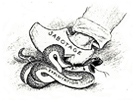- past
- NATALIA LAZURCA | waters/lusters/gems
- PEPO SALAZAR LACRUZ | Reinforcement of Good...
- STEFANO CALLIGARO | Glitterature
- DANIEL MOLDOVEANU | The Whatever Moment
- RĂZVAN BOTIȘ | the Ceramist
- CLUJ afterSCHOOL#3 | George Semeniuc
- ALEX MIRUTZIU | The unnerving inches of being
- PEPO SALAZAR | W I N
- NICOLÁS LAMAS | Liminality
- CAMILIA FILIPOV | Surface Actually
- ALINE CAUTIS | Searchers
- VLAD NANCĂ | In the natural landscape...
- CLUJ afterSCHOOL#1 | Anca Brânzaș
- ALEX MIRUTZIU | Dignity to the unsaid
- STEFANO CALLIGARO | Petanqfuck
- JOE FLETCHER ORR | A Flamingo...
- MIKOŁAJ MOSKAL | Bones
- PEPO SALAZAR | Belong anywhere. Meat floating job position
- Künstlich, natürlich!
- RĂZVAN BOTIȘ | Cashmere thoughts
- RADU COMȘA | Naked and drawing with a compass
- DANIEL JACOBY & GERARD ORTIN et al. | Tofu Absorbs Flavour
- NONA INESCU | Hands don't make magic
- OBJECTS OF DESIRE
- NOA GUR | Ways of making visible
- ALEXANDRA ZUCKERMAN | The Dreaming House
- STEFANO CALLIGARO | All-Yo! Crypto-Phylo-s'
- MIHUȚ BOȘCU KAFCHIN | Fraction of lightnings, plants, and synapses
- NICOLÁS LAMAS | The value of formlessness
- ALINE CAUTIS | something for/from everyone
- RĂZVAN BOTIȘ | Going Twomblysh, Woolish, Foolish
- GEORGE CRÎNGAȘU | The Ocean and the Friendly Shore
- ALEX MIRUTZIU | Each thought's an instant ruin with a new disease
- ALICE TOMASELLI | Fracas in a brothel
- VLAD NANCĂ | Garden of Mary
- GAUDEL DE STAMPA @ Sabot
- &
- LUCIE FONTAINE | i-n-v-e-n-t-o-r-y
- PAUL BRANCA| L'origine de l'espace privé &&&
- ALEX MIRUTZIU | Film program
- SABOT @ Pies | New Nomenclature
- SABOT @ Gaudel de Stampa | Play Dice Would Be Nice
- DIMITRIOS ANTONITSIS | Sarmale with Ketchup
- COLLECTOR | A collective assemblage by amt_project
- RADU COMȘA | Things As They Are
- STEFANO CALLIGARO | For not turning all my nothing into something
- ALINE CAUTIS | With, For, and Against Each Other
- ŁUKASZ JASTRUBCZAK | Mirage
- MIHUŢ BOŞCU KAFCHIN | A prologue to vanity and self-adoration
- VALENTINA MIORANDI / See you!
- VLAD NANCĂ | Works
- MAJA BORG | Construction work: the pornography of world peace
- YLVA OGLAND | In any weather, at any hour of the day or night
- RADU COMŞA | Being Radu Comşa
- ALICE TOMASELLI | Mihai
- ALEX MIRUTZIU | Manifest of flaw
©SABOT 2023
